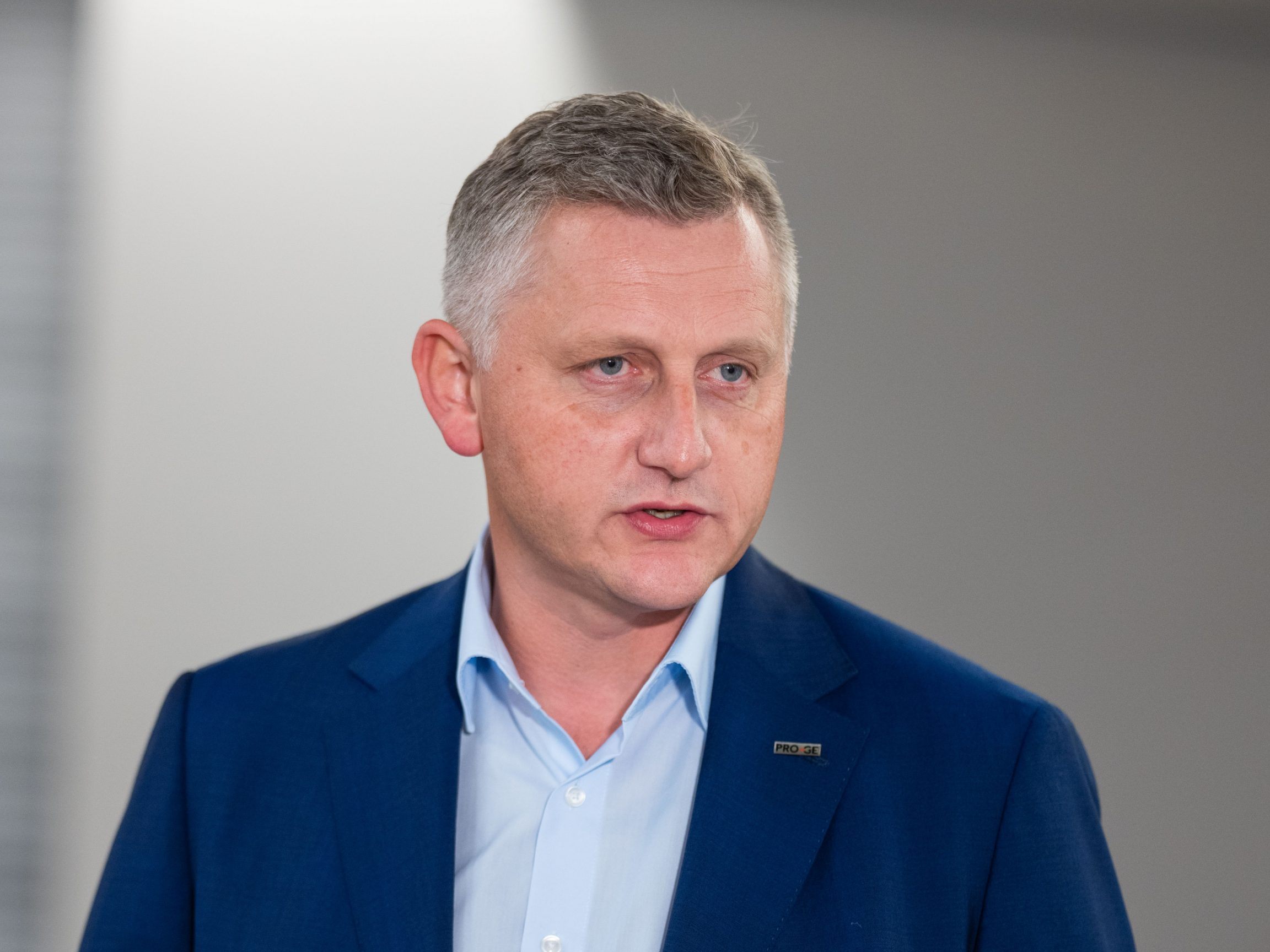Union PRO-GE: No Zero Wage Round in 2025

A zero wage round, as demanded by industry representatives, will not happen. There is no reason for it, clarified PRO-GE chief Reinhold Binder.
"Mother of All Issues"
This year, compensation for inflation will be a "very essential point." And collective agreement expert Peter Schleinbach assisted: "The mother of all issues is inflation." It would devalue work, and after all, wages are not just a cost factor but also the basis for demand.
Referring to figures from the economic research institute Wifo, the unionists calculate: In 2021 and 2022, private consumption expenditures increased by almost five percent, in 2023 and 2024 they were in the negative, and for this year, the growth is seen at 0.8 percent.
From 2022 to this year, the tariff wage index in the industry rose by 20.9 percent, inflation by 20.2 percent. And the inflation in the micro-basket, which reflects daily shopping, is even at 44.7 percent.
The high energy costs, under which the economy groans, would also affect the employees. And regarding the struggling automotive industry, it was said that it had invested too little in the future in the past. Binder wants to see the constant complaints about high bureaucratic effort from the economy in a differentiated way - documentation obligations also serve employee protection.
Bernhard Leubolt, an economic expert at PRO-GE, calculated on Tuesday: With an already low inflation of an assumed two percent, a three-year zero wage round would be eaten up by inflation alone in terms of vacation and Christmas bonuses. It is true that unit labor costs have been rising since 2022, but before that, they had fallen. The current change is in any case "not dramatic," said Leubolt.
Wage Rounds with Special Features
Three special features characterized the wage rounds of recent years, but only for certain sectors. For example, the electrical industry has a leisure option, meaning more free time in exchange for foregoing the collective agreement increase. In the metal industry, a hardship clause was introduced, allowing particularly labor-intensive companies with weak order situations not to implement the entire collective agreement increase. Metalworkers and trade have also recently agreed on a two-year collective agreement.
All these things are also conceivable for this year, according to Binder, but in principle, a one-year agreement is preferred. It's not just about increasing wages and salaries; recently, December 31st was made a non-working day in the textile industry.
Given the downturn in the industry, the possibility of more short-time work is viewed with mixed feelings by the trade unionists. This work model should only be applied to short-term problems. The shortage occupation list, which allows workers from non-EU third countries to come to Austria, is not ideally set up according to PRO-GE. One should look at the "last-class pay" in some sectors, Binder told journalists.
"Collective Agreement Spring" with Several Sectors
The production union PRO-GE negotiates a total of 121 collective agreements throughout the year for about 500,000 workers and apprentices. The "Collective Agreement Spring" in the industry includes the chemical industry (50,000 employees), electrical and electronics industry (60,000 employees), glass industry (6,500 employees), paper industry (8,000 employees), and textile industry (7,500 employees). The autumn wage round is traditionally initiated by the metal industry (around 200,000 employees) in mid-September.
The basis for bargaining is traditionally the rolling inflation, i.e., the inflation of the past twelve months. This was 2.8 percent from March 2024 to February 2025.
While the spring wage round is approaching, other sectors have recently concluded agreements. For agricultural estates in Upper Austria, a collective agreement increase of 3.2 percent was agreed upon. The new minimum wage is 1,934 euros gross. In the sugar industry, there is a 3.33 percent increase in wages (minimum wage: 2,222 euros). Employees in cemetery horticulture receive 2.9 percent more, and in the non-profit housing sector, there is a gross increase of 3.1 to 3.3 percent.
Linkage to Inflation
Inflation is of particular interest to retail employees. The agreement of the social partners last year on a two-year collective agreement (KV) includes a fixed linkage of salaries in 2026 to the annual inflation of 2025.
For a rolling inflation of up to 2.3 percent, salaries increase by 0.5 percent above the inflation rate. With an annual inflation of 2.4 and 2.5 percent, incomes rise by 0.4 percent. At 2.6 percent inflation, the increase is then 0.3 percent, at 2.7 percent only 0.2 percent above inflation, and at 2.8 percent, it is only 0.1 percent. If consumer prices rise by three percent or more, negotiations in the retail sector will be reopened.
(APA/Red)
This article has been automatically translated, read the original article here.





